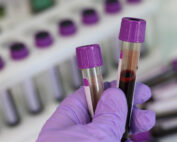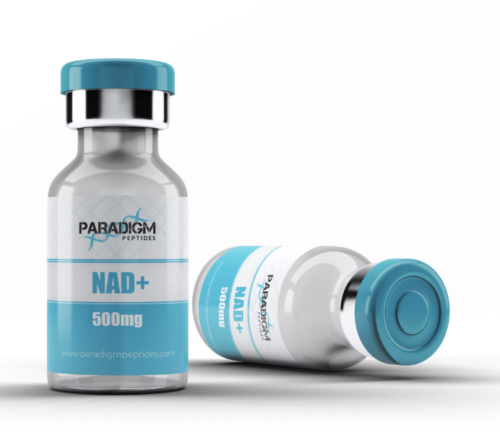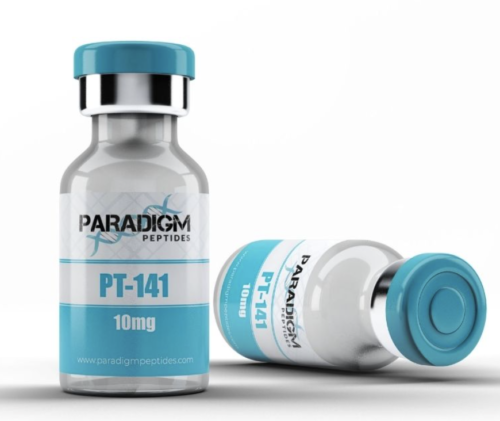Heart
Welcome to our page dedicated to heart health, a topic of paramount importance. The heart, as the central organ of the cardiovascular system, plays a vital role in sustaining our overall well-being. It tirelessly pumps oxygen-rich blood throughout our bodies, supplying nutrients and removing waste.
Maintaining a healthy heart is crucial for a long and active life. Unfortunately, cardiovascular diseases remain a leading cause of death globally. Factors such as sedentary lifestyles, unhealthy diets, smoking, and stress contribute to the development of heart conditions. However, by prioritizing heart health through lifestyle choices and regular medical check-ups, we can significantly reduce the risk of heart disease and promote a stronger cardiovascular system.
We will provide you with valuable insights, practical tips, and evidence-based information to help you make informed decisions about your heart health.
Remember, a healthy heart is not only essential for your physical well-being but also impacts your mental and emotional health. So let’s embark on this journey together and empower ourselves to prioritize heart health, ensuring a vibrant and fulfilling life.
Most risk factors for heart disease are silent. The American Heart Association recommends knowing your numbers at an early age.
- Request a heart screen.
- Blood pressure checks every two years
- Body mass index (BMI) and waist circumference measured every year
- Cholesterol tests every five years (more frequently when you turn 45 for a man, 50 for a woman, or if you have other risk factors or abnormal levels)
- Blood glucose tests every three years
Many people do not even realize they have high blood pressure. High blood pressure can harm the body’s arteries and essential organs if it is not managed. At-home monitors are thankfully reasonably priced, accessible, and user-friendly. Keep in mind that your blood pressure can be raised by outside causes including exercise, stress, and medications. Discover the meaning of your numbers. Keep a daily journal and track your blood pressure at home for fun. If you continue to maintain the appropriate values of 120/80 mmHg, reward yourself with a nutritious snack. At home, monitor your blood pressure.
Exercise can have a variety of positive effects on your heart, including:
- Strengthening the heart muscle: Regular exercise, especially aerobic exercise like jogging or cycling, can help strengthen the heart muscle. This can make the heart more efficient at pumping blood throughout the body, which can help reduce the risk of heart disease.
- Improving circulation: Exercise can also help improve circulation by increasing the amount of oxygen and nutrients delivered to the body’s tissues. This can help reduce the risk of blood clots and other cardiovascular problems.
- Lowering blood pressure: Exercise can help lower blood pressure by making the heart work more efficiently and reducing the resistance in the blood vessels. This can help reduce the risk of hypertension and other heart-related problems.
- Reducing cholesterol levels: Regular exercise can help reduce the level of “bad” cholesterol in the blood (LDL) while increasing the level of “good” cholesterol (HDL). This can help reduce the risk of heart disease.
- Managing weight: Exercise can help you manage your weight, which can also help reduce the risk of heart disease. Being overweight or obese can increase the risk of heart disease, so regular exercise can be an important part of maintaining a healthy weight.
Overall, regular exercise can help improve your heart health by strengthening the heart muscle, improving circulation, lowering blood pressure, reducing cholesterol levels, and managing weight.
Omega-3 fatty acids are a type of polyunsaturated fat that is commonly found in fatty fish, such as salmon, mackerel, and tuna, as well as in some plant-based sources, such as chia seeds and flaxseeds. Omega-3s have been found to have several health benefits, particularly when it comes to heart health. Here are some of the reasons why:
- Reducing inflammation: Omega-3s have anti-inflammatory properties, which can help reduce inflammation throughout the body, including in the blood vessels. Chronic inflammation can contribute to the development of heart disease, so reducing inflammation can help reduce the risk of heart disease.
- Lowering triglycerides: Triglycerides are a type of fat in the blood that can increase the risk of heart disease when levels are too high. Omega-3s have been found to lower triglyceride levels, which can help reduce the risk of heart disease.
- Preventing blood clots: Omega-3s can help prevent blood clots by reducing the stickiness of blood platelets. Blood clots can lead to heart attacks and strokes, so preventing them is important for heart health.
- Regulating heart rhythm: Omega-3s can help regulate heart rhythm by stabilizing the electrical activity of the heart. This can help prevent arrhythmias, which are abnormal heart rhythms that can be dangerous.
Overall, omega-3 fatty acids can have several positive effects on heart health, including reducing inflammation, lowering triglycerides, preventing blood clots, and regulating heart rhythm.
Fiber is an important nutrient that can have several positive effects on heart health. Here are some reasons why:
- Lowering cholesterol levels: Soluble fiber, which is found in foods like oats, beans, and fruits, can help lower “bad” cholesterol (LDL) levels by reducing the absorption of cholesterol in the intestines.
- Reducing blood pressure: Fiber can help reduce blood pressure by increasing the viscosity of the blood, which can help improve blood flow and reduce the resistance in the blood vessels.
- Improving blood sugar control: Fiber can help improve blood sugar control by slowing down the absorption of sugar into the bloodstream. This can help reduce the risk of developing type 2 diabetes, which is a risk factor for heart disease.
- Promoting weight loss/maintenance: Fiber-rich foods tend to be more filling than low-fiber foods, which can help promote satiety and reduce overall calorie intake. Maintaining a healthy weight can help reduce the risk of heart disease.
- Reducing inflammation: Some types of fiber, particularly prebiotic fiber, can help promote the growth of healthy gut bacteria, which can help reduce inflammation in the body. Chronic inflammation can contribute to the development of heart disease.
Overall, fiber can have several positive effects on heart health by lowering cholesterol levels, reducing blood pressure, improving blood sugar control, promoting weight loss/maintenance, and reducing inflammation.
Getting adequate sleep can have several positive effects on heart health. Here are some reasons why:
- Reducing stress: Sleep can help reduce stress levels, which can be beneficial for heart health. Chronic stress can contribute to the development of heart disease.
- Lowering blood pressure: Sleep can help lower blood pressure by allowing the body to rest and recover. High blood pressure is a risk factor for heart disease.
- Reducing inflammation: Sleep can help reduce inflammation in the body, which can be beneficial for heart health. Chronic inflammation can contribute to the development of heart disease.
- Improving glucose metabolism: Sleep can help improve glucose metabolism by allowing the body to regulate insulin and glucose levels. Poor glucose metabolism is a risk factor for heart disease.
- Supporting healthy weight: Sleep can help support a healthy weight by regulating hormones that control appetite and metabolism. Being overweight or obese is a risk factor for heart disease.
Overall, getting adequate sleep can have several positive effects on heart health by reducing stress, lowering blood pressure, reducing inflammation, improving glucose metabolism, and supporting a healthy weight. It is recommended that adults aim for 7-8 hours of sleep per night for optimal health benefits.
More harm results from excess belly fat than from excess fat everywhere else on the body. Your risk of diabetes, heart disease, and stroke increases if you have abdominal fat. A waist measurement of 40 inches or more for males and 35 inches or more for women indicates an excessively high waist and may indicate a need for weight loss.
All age groups frequently have low vitamin D levels, which have been related to high blood pressure and an increased risk of heart disease. Older age, female sex, obesity, lack of sun exposure, and inadequate milk intake are all factors linked to decreased levels. Ask your doctor if you should have your vitamin D level examined and whether supplementation is necessary if you think you may have low vitamin D levels.
Meditation is a mind-body practice that can have several positive effects on heart health. Here are some reasons why:
- Reducing stress: Meditation can help reduce stress levels, which can be beneficial for heart health. Chronic stress can contribute to the development of heart disease.
- Lowering blood pressure: Meditation can help lower blood pressure by reducing the activity of the sympathetic nervous system, which controls the body’s “fight or flight” response. High blood pressure is a risk factor for heart disease.
- Reducing inflammation: Meditation can help reduce inflammation in the body, which can be beneficial for heart health. Chronic inflammation can contribute to the development of heart disease.
- Improving heart rate variability: Heart rate variability refers to the variation in time between heartbeats. Higher heart rate variability is associated with better heart health. Meditation can help improve heart rate variability by reducing stress and promoting relaxation.
- Promoting healthy behaviors: Meditation can also promote healthy behaviors, such as regular exercise, healthy eating, and not smoking. These behaviors can help reduce the risk of heart disease.
Overall, meditation can have several positive effects on heart health by reducing stress, lowering blood pressure, reducing inflammation, improving heart rate variability, and promoting healthy behaviors. It is important to note that meditation should not be used as a substitute for medical treatment for heart disease or other health conditions.
The stiffness of your arteries may be related to your flexibility. Heart disease is linked to arterial stiffness. Your arteries’ flexibility and performance may be improved through stretching, yoga, and pilates.
One of the diet’s finest sources of nitrates, which enhance blood flow and heart health, is beetroot juice.
Dark chocolate is packed with flavonoids, which are powerful antioxidants that promote heart health. Attempt to limit your serving size to a small square.
You may improve the health of your heart by cooking using heart-healthy replacements like garlic, ginger, and rosemary.
Fatty meats, lard, cream, butter, and cheese are a few examples of these foods. A healthy heart can be achieved by selecting lean meat cuts and consuming fewer fatty dairy items.
Being overweight can increase your risk of heart disease. Stick to a healthy, balanced diet low in fat and sugar, with plenty of fruit and vegetables, combined with regular physical activity.
Spend the first five minutes of your day taking a few deep breaths and/or engaging in some meditation. Review your list of blessings quickly to get in a good mood and start your day. Setting the tone for the rest of the day can lessen stress, which will benefit your heart’s overall health.
For most people, this is probably a dream come true. It has been clinically demonstrated that petting your pets improves heart health by releasing endorphins, reducing stress, and lowering blood pressure.
According to the National Institutes of Health, green tea offers many scientifically documented health advantages. According to studies, drinking green tea can lower cholesterol levels and blood pressure, two major risk factors for heart disease.
Black or green tea without sugar can reduce your chances of a heart attack or stroke. While the tea’s polyphenols and antioxidants are the health-improving ingredients, studies show that just sipping a cup of tea thoughtfully can lower stress levels by 54%.
Here are some reasons why:
- Reducing stress: Laughter can help reduce stress levels, which can be beneficial for heart health. Chronic stress can contribute to the development of heart disease.
- Improving blood flow: Laughter can help improve blood flow by causing blood vessels to dilate. This can help improve the delivery of oxygen and nutrients to the heart and other organs.
- Boosting immune function: Laughter can help boost immune function by increasing the production of antibodies and activating immune cells. This can help protect against infections and other diseases that can affect heart health.
- Reducing inflammation: Laughter can help reduce inflammation in the body, which can be beneficial for heart health. Chronic inflammation can contribute to the development of heart disease.
- Improving mood: Laughter can help improve mood by releasing endorphins, which are natural feel-good chemicals in the brain. A positive mood can be beneficial for heart health.
Overall, laughing can have several positive effects on heart health by reducing stress, improving blood flow, boosting immune function, reducing inflammation, and improving mood. However, it is important to note that laughter should not be used as a substitute for medical treatment for heart disease or other health conditions.
Eating a heart-healthy diet is one of the most important steps you can take to reduce the risk of heart disease. Here are some of the best foods to eat for heart health:
- Fruits and vegetables: These are rich in vitamins, minerals, antioxidants, and fiber, all of which can help reduce the risk of heart disease. Aim for a variety of colorful fruits and vegetables each day.
- Whole grains: These are rich in fiber, vitamins, and minerals, and can help reduce the risk of heart disease. Choose whole-grain bread, pasta, rice, and cereals.
- Lean protein: Choose lean sources of protein, such as skinless chicken or turkey, fish, beans, and lentils. These are low in saturated fat, which can help reduce the risk of heart disease.
- Nuts and seeds: These are a good source of healthy fats, protein, and fiber, and can help reduce the risk of heart disease. Choose unsalted nuts and seeds and eat them in moderation.
- Healthy fats: Choose healthy fats, such as those found in olive oil, avocados, fatty fish (like salmon), nuts, and seeds. These can help reduce the risk of heart disease.
- Low-fat dairy products: Choose low-fat or fat-free dairy products, such as milk, cheese, and yogurt. These are a good source of calcium and can help reduce the risk of heart disease.
- Limit saturated and trans fats: Avoid or limit saturated and trans fats, which can increase the risk of heart disease. These are found in fried foods, processed snacks, and high-fat dairy products.
A few other tips:
The risk of having a heart attack can be decreased by 40% by drinking at least 5 to 8 glasses of water every day. Even modest dehydration causes the blood to thicken and lower blood volume, which narrows the blood arteries and puts too much strain on the heart.
Utilize extra virgin olive oil and avocado oil, which are rich in monounsaturated fats, antioxidants, and anti-inflammatory substances that help reduce cholesterol and inflammation. Olive oil has a lower smoke point than avocado oil, making avocado oil more suitable for cooking at higher temperatures.
Swap your sugary or salty snacks for about an ounce of nuts at least two or more times per week. A small snack of nuts has been shown to improve blood lipid levels and reduce the risk of coronary heart disease, without resulting in weight gain.
The risk of arrhythmias (irregular heartbeat), atherosclerosis (plaque build-up in the arteries), and triglycerides can all be reduced by eating wild-caught, fatty fish like salmon, sardines, and mackerel twice a week.
More cabbage should be consumed, whether it be raw, cooked, or fermented. By avoiding platelet formation and lowering blood pressure, cabbage’s high polyphenol content can help lower the risk of cardiovascular disease, while the probiotics in sauerkraut or kimchi can improve gut health and the immune system.
Overall, a heart-healthy diet should be rich in fruits, vegetables, whole grains, lean protein, nuts, seeds, healthy fats, and low-fat dairy products, and should limit saturated and trans fats.
When it comes to dinner, the time you eat may be just as crucial to your heart’s health as the foods you consume. According to recent studies, eating dinner within two hours of retiring may raise nocturnal blood pressure and, consequently, the chance of having a heart attack, especially in those who already have high blood pressure. However further research is required to support this finding, health professionals concur that eating too soon before bed might disrupt your sleep and induce indigestion.
Adults can improve their heart health by taking the first step by becoming aware of this information. The majority of American people, according to the Centers for Disease Control and Prevention, have hearts that are older than their real ages, which puts them at an elevated risk of having a heart attack or stroke. Here is a link to the Heart Age Quiz (systolic blood pressure (mmhg) and body mass index (BMI) are necessary). Retaking the test is possible at any time, especially after making progress in lowering one’s body mass index and blood pressure. It may serve as a cost-free and straightforward motivational tool for future heart health.
Although it may be difficult for the majority of people who are sedentary to maintain physical activity, health professionals frequently recommend it to prevent cardiovascular disease. While it is accessible to people of all ages and social classes and carries a low risk of harm, walking is a wonderful place to start. A study shows that using pedometers or other walking-related mobile phone apps can increase walking levels. Using a pedometer helped people boost their total levels of physical activity by 27%, according to a compilation of 26 independent research, and users took at least 2,000 more steps per day than nonusers did.
With medical patients, music has been shown to lower anxiety and enhance physiological performance. Every Day Health claims that over time, listening to music may lower blood pressure and heart rates. Making cherished songs accessible on mobile devices or discovering new music through subscription apps are two ways to enjoy more music.
Healthy relationships can lengthen life and improve health. In fact, research demonstrates that social connections are advantageous for a number of activities that either directly or indirectly influence the risk of cardiovascular disease. Even with a busy schedule, there are various methods to stay in touch with loved ones, including scheduling time to talk on the phone with them during daily commutes or planning to meet together.
Products that may help improve knee pain:











